Your Mother interview
A great hidden gem from the sixties. Your Mother was a group from Connecticut who self-released only one single, ‘Cryptic Subterfuge’/’Hello’ in 1968. ‘Cryptic Subterfuge’ is a wonderful slice of dark psychedelia from that special period of time.
Where and when did you grow up? Was music a big part of your family life? Did the local music scene influence you or inspire you to play music?
Jeff Purvin: I was born in Dallas, Texas. My Dad was a very good singer. My parents had a muscular HiFi and played 40’s and 50’s standards on it all the time, especially singers like Frank Sinatra, Al Martino, Perry Como, etc. Listening to the Beatles on the AM radio and on LP’s was what first influenced me to ask my parents to buy me a guitar. I was in grammar school. There was no music scene for me.
Jonathan LeVeen: I grew up in a small town in Central Massachusetts, about 90 km west of Boston. My mother played piano (Chopin nocturnes mostly). Every Sunday morning, my father would play Broadway Show tunes on the stereo. There wasn’t much of a local music scene. But our local rock radio station was unusual; it only played songs that people requested. So I heard a lot of unusual and rare rock growing up. I also sang in a church choir that toured around the northeastern US.
Gary Tharler: Trick question? I’m 70 and still haven’t grown up. Ask my wives. Born in Leominster MA. Music was significant in our house. My mother was a piano child prodigy, music scholarship etc. Baby grand in the living room. Sundays particularly were filled with classical music or Broadway show tunes. Went to the symphony in Boston. My brother loved jazz and brought that into my life. Too young to be aware of any “scene” in my small New England town.
When did you begin playing music? What was your first instrument? Who were your major influences?
Jeff Purvin: My parents fooled me by buying me a classical, not an electric, guitar. I was ignorant about guitars and didn’t know that there were different types. They also set me up with a good classical guitar teacher. I knew I had been scammed by my parents, but was too embarrassed to complain. Anyway, I found that I really enjoyed playing classical guitar. Maybe that explains why, later, I so liked bands like the Left Banke and Deep Purple.
I went away to a boarding high school. On one of my first days there, I heard an electric bass for the first time. I was floored by its sound. Thanks to my classical experience, I knew where all the notes were on the bass and could almost immediately pick it up and blend in with other musicians. I wasn’t any good. But, I sounded like I fit right in.
During those years, I loved the Music Machine’s “Talk Talk”, the Who’s “My Generation”, Strawberry Alarm Clock’s “Incense and Peppermints”, The Yardbird’s “I’m a Man”, The Amboy Duke’s “Journey to the Center of your Mind”, Vanilla Fudge’s “You Keep me Hanging on”, Moby Grape’s “Omaha”, Quicksilver’s “The Fool”, and scores of others.
Jonathan LeVeen: We had an old upright piano in the basement. I started banging on it when I was 5, and started lessons the next year. I never practiced. After going to five different teachers, my parents finally gave up. Then one summer when I was 16 I found a jazz piano player who gave me a few lessons, and taught me about jazz chords and how to read a jazz chart.
Gary Tharler: Drums…seven? 1957. Influenced early on by great jazz drummers, some from my parents era. Gene Krupa, Lionel Hampton, Chico Hamilton, Ed Thigpan, Buddy Rich. Rock drummers: Ginger Baker, Keith Moon. And later I came to respect Ringo and John Densmore. They weren’t showboats, but rather came up with phrasing that fit and augmented the song…but subtly.
What bands were you a member of prior to the formation of Your Mother?
Jeff Purvin: The Sentry’s, The Jaegers and The Essence of Sound.
Jonathan LeVeen: The first band was The Essence of Sound with Jeff. This was where we started playing Jeff’s original songs. Jeff asked me to join as a singer (we were in the school Glee Club together). Soon after, I bought a combo organ (an Ace-Tone Phenix).
Gary Tharler: Other than a very talented children’s classical orchestra, nothing formal. I was a child. Your Mother, I was 17?
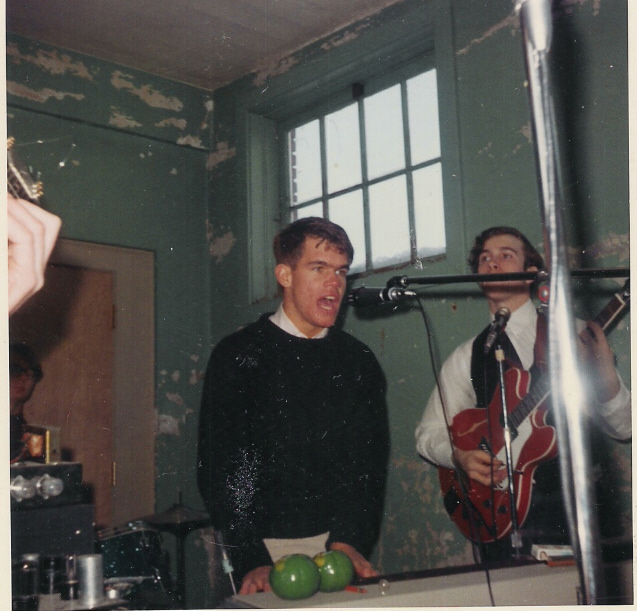
What was the first song you ever composed?
Jeff Purvin: A song I came up with spontaneously when I was 2 years old, standing in my crib looking out at the “little birdies” in the back yard.
Jonathan LeVeen: I think the first “real” song was “The Girl With the Long Blonde Hair”. It was pretty bad – but Jeff was encouraging and we even played it a couple of times at gigs.
Gary Tharler: None.
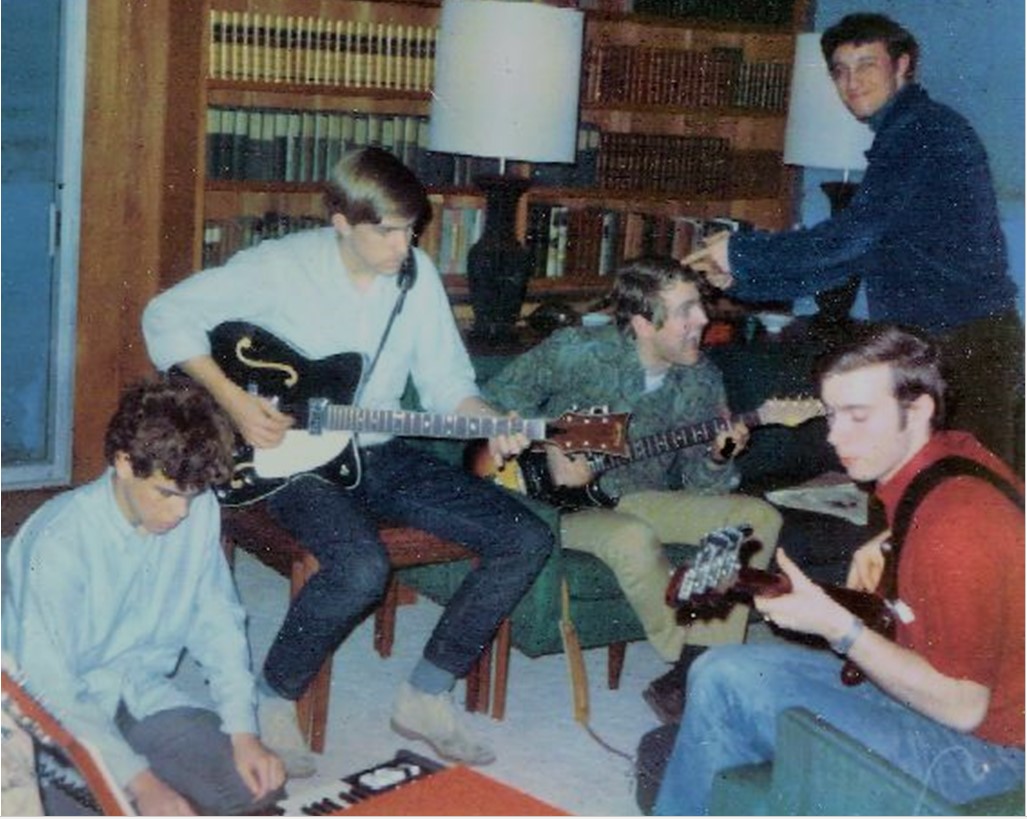
Can you elaborate the formation of Your Mother?
Jeff Purvin: To some extent, I remember it as being a super band formed by bringing together the best musical talent then available at our school.
Jonathan LeVeen: My memory is a little hazy but … Jeff, Eddie and Willie (“PQ”) were in a band (“The Sentrys”?) that played covers and some surf music. When that band broke up, Jeff formed the Essence of Sound, adding me, a drummer, a lead guitarist and a rhythm guitarist. That must have been our sophomore (second) year. The next year, that band morphed into Your Mother, with Jeff, Eddie, Willie and me, and adding Gary. I remember thinking that we had created a “Super Group” at the time.
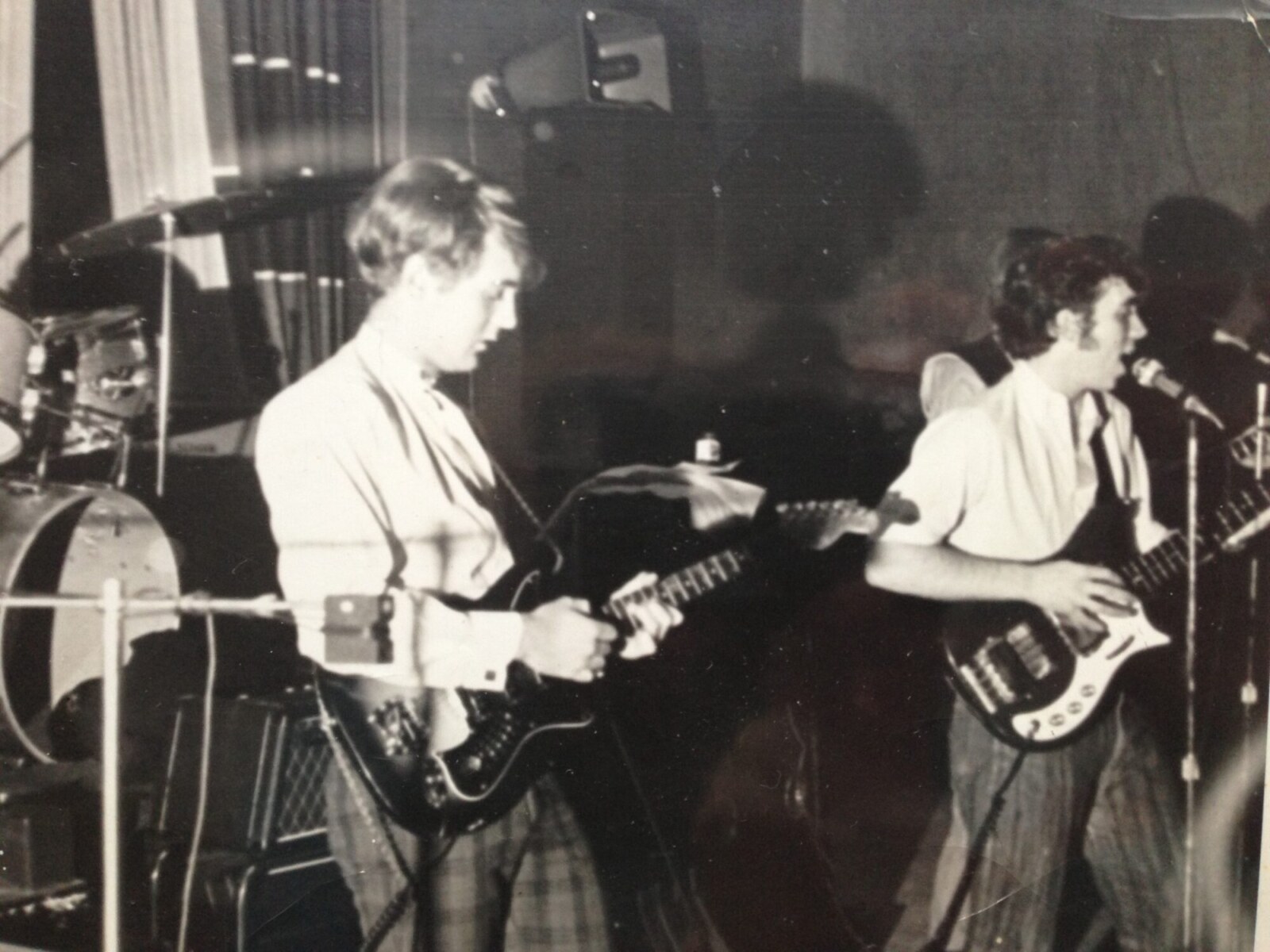
Gary Tharler: We were all in a boarding school, Pomfret, in Connecticut. I came sophomore year. I believe the other members were there as freshmen. A mutual friend told Jeff about me and that I was an “amazing” jazz drummer. Jeff had a group and there was an opening for a drummer. The fact that I was a jazz drummer was also appealing I believe. (Like movie, “That Thing You Do.”)
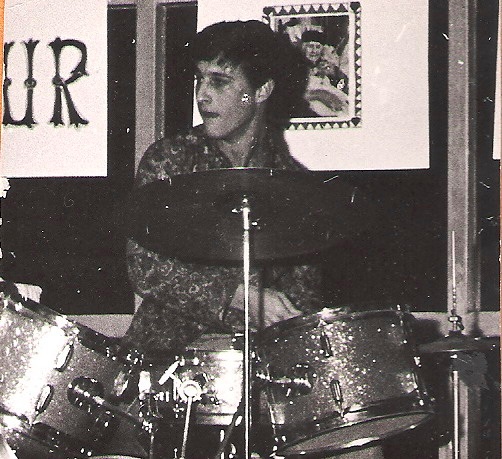
When and where did Your Mother play their first gig? Do you remember the first song the band played? How was the band accepted by the audience?
Jeff Purvin: I don’t remember our first gig or the first song we played at it. But I found an old Essence of Sound set list, attached. My guess is that almost all of the songs on that prior band’s list would have been played at the first Your Mother gig, too. You can see on the attached that almost all the songs we played were originals. In retrospect, I realize that this was pretty unusual. Every one of my later bands played mostly covers of popular songs. I remember Your Mother played a few covers of other artists’ songs, e.g. Cream’s “White Room” and Jimi Hendrix songs. But, mostly, You Mother played its own songs.
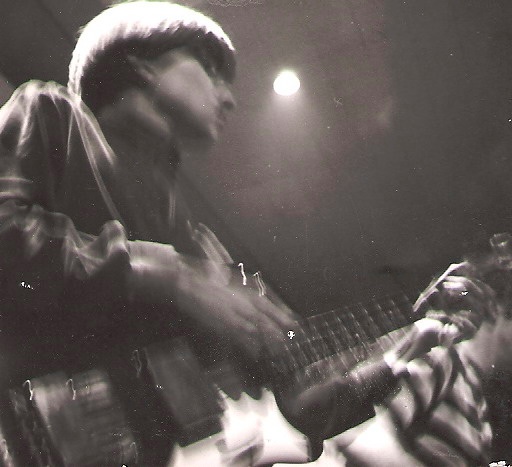
Jonathan LeVeen: I have a tape of a very early gig by the Essence of Sound playing at a school dance. On the tape, we’re playing some of Jeff’s songs, plus “As Tears Go By” by the Rolling Stones and “Heart Full of Stone” by the Yardbirds. I remember an early Your Mother dance where we had an enthusiastic crowd, especially when people recognized one of Jeff’s originals.
Gary Tharler: Must’ve been at a Pomfret “mixer”. (A girls school busses over for dinner/dance) Song…no idea. We were always received enthusiastically.
Jonathan LeVeen: I found a tape of a school dance, but the quality is terrible. I found another tape from around the same time (probably January or February 1967) that has slightly better audio. I edited out the cover songs, and just left in the sings that Jeff wrote (the last one is mine). I think we were 15 and 16 years old at the time. The only place to practice was a terrible room that was used to store things for the school’s old gym. And I think I recorded this on my old Wollensak tape recorder.
This was The Essence of Sound — the band that Jeff formed. Your Mother came the next year, and this time it was Jeff and me, along with three new players – Willie, Ed and Gary. I think it’s interesting to hear Jeff’s songs, though – not bad for a 16-year-old. And for all of us, this was about the first time any of us had played in a band. I am glad for the experience — and the fact that it was the beginning of a life-long love of listening to, and preforming, music. It’s fun to tell people that I’m 69 and play in a band!
What sort of venues did Your Mother play early on? Where were they located?
Jeff Purvin: Most of our gigs were played in the building that housed our prep school’s rather large dining room. We played a few private parties, including one in Westchester, New York, attended by the Munster’s actor, Fred Gwynne.
Jonathan LeVeen: As Jeff said, we mostly played school dances. Either at our all-boys prep school or at nearby all-girl prep schools.
Gary Tharler: School dances.
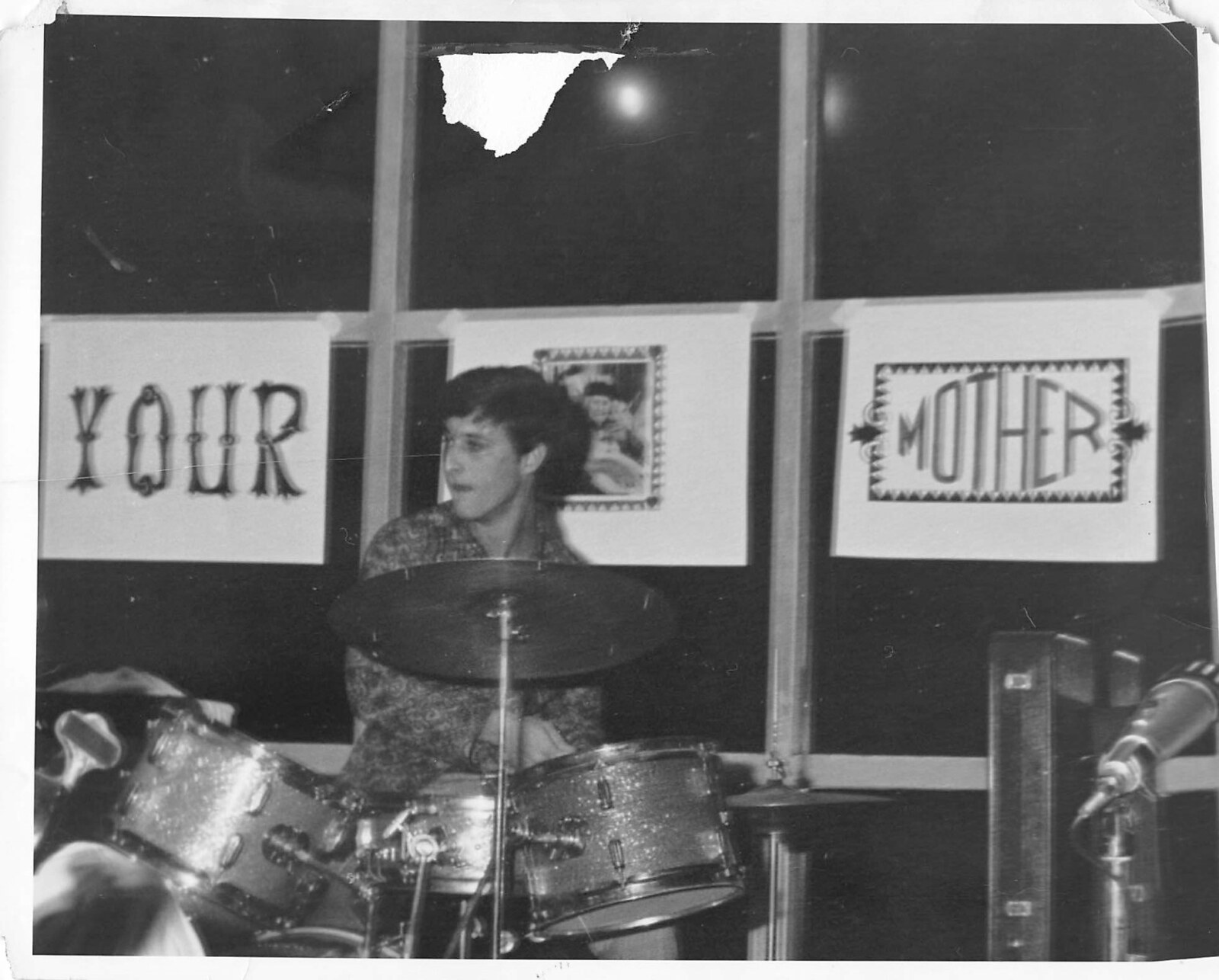
How did you decide to use the name “Your Mother”?
Jeff Purvin: I think Gary Tharler came up with it. He sold us by imagining aloud someone asking “Hey, what band is playing tonight” and then, with a heavy juvenile delinquent accent, responding, “Your Mother.”
Gary Tharler: We were getting punchy from hours(?) of brainstorming. At some point I somewhat facetiously suggested “Your Mother”. (Like, if someone would ask…”Who’s playing tonight?”…someone else would say “Your mother.” Fight would break out. Great fun.) Like I said, I guess we were all getting punchy. We looked at each other with sort of, “Eh…why not? looks…and voila!
What influenced the band’s sound?
Jeff Purvin: Everyone brought a little of themselves to the band’s sound. Jon had a highly developed “FM Music” sense. He drew from a large catalog of ideas to add just the right musical touches to our songs. Gary was, at his heart, a jazz drummer and added a lot of percussive subtlety to our sound. Ed was our engine room, always keeping us on the move in our songs. Willie was probably our most technically accomplished member. He gave our audiences many exciting Jimmy Page-like lead guitar moments.
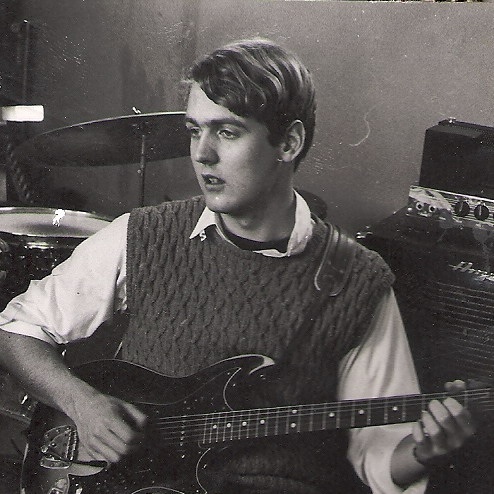
Jonathan LeVeen: I think we all had our own influences. For me, it was the early Grateful Dead’s psychedelic sound and bands like Country Joe and the Fish.
Gary Tharler: We tended toward Hendrix, Cream, classic blues, equally because we liked those genres, and because our lead guitarist, PQ, could nail any of them. He was amazing.
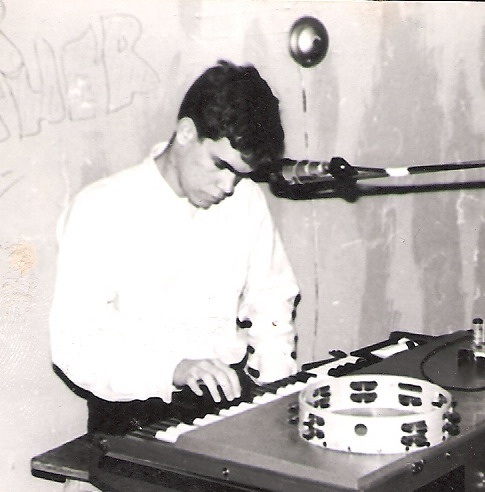
In 1968 you self-released ‘Cryptic Subterfuge / Hello’ single. How did that come about? How many copies did you press?
Jeff Purvin: I remember discussing the idea of recording a few of our songs with Willie. He knew of a good recording studio fairly nearby. And shortly thereafter, I found myself calling the studio to get a feel for their costs. We could only afford paying for exactly one hour of recording time, and that’s exactly what we ended up doing. After we recorded, I took the tape to tiny office in a nondescript building in New York City that pressed 1,000 copies of our record for me. We put up a sign-up sheet at our school and several other schools. We sold all of them for $1 each, successfully paying me back all the recording costs involved.
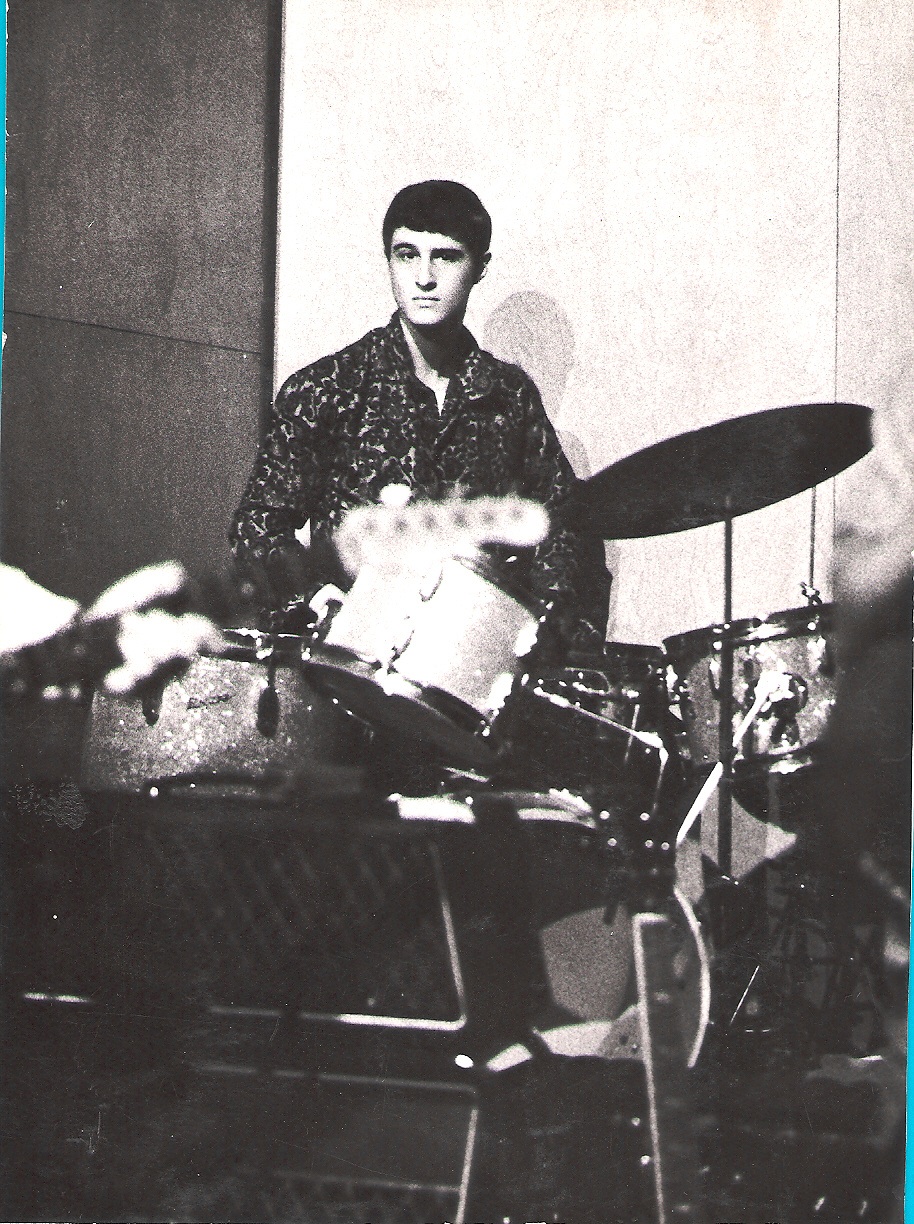
Jonathan LeVeen: That was Jeff’s composition, and we each added something.
Gary Tharler: Jeff either knows or I’ll just be repeating.
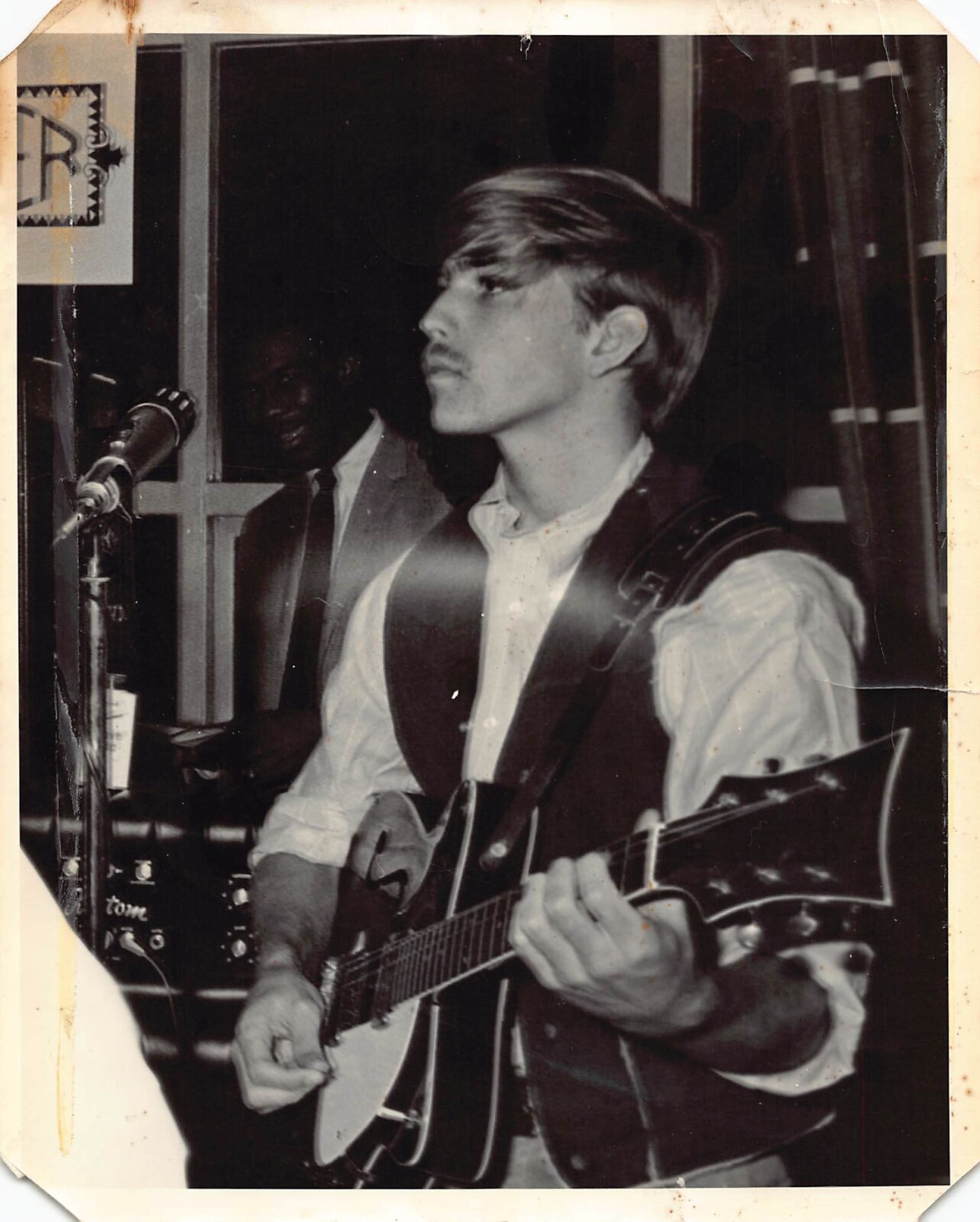
What’s the story behind those two songs?
Jeff Purvin: “Hello” came about while I was a camp counselor in Maine. I used to play for the campers with a fellow counselor named Joe Barth. One day, I shared with Joe the verse part of “Hello”. He liked it and came back with the chorus part the next day. We pasted it all together and, voila, “Hello”. I wrote “Cryptic Subterfuge” alone in my dorm room. I was playing my non-amplified Epiphone bass while sitting on the bottom bunk of Gary’s and my bed. I played the song’s simple, beginning bass part and spontaneously started singing a very close variant of the song’s eventual first verse which featured a townhall. There was no rhyme or reason to my selecting a townhall as my song’s focus. But, almost immediately, I sensed the eeriness of the song’s bass and my initial melody and knew instantly this was going to be a story song. I switched out the bass for my classical guitar and quickly came up with the chorus and the little lead guitar riff that follows the verses. I spent the next few days writing the rest of the lyrics.
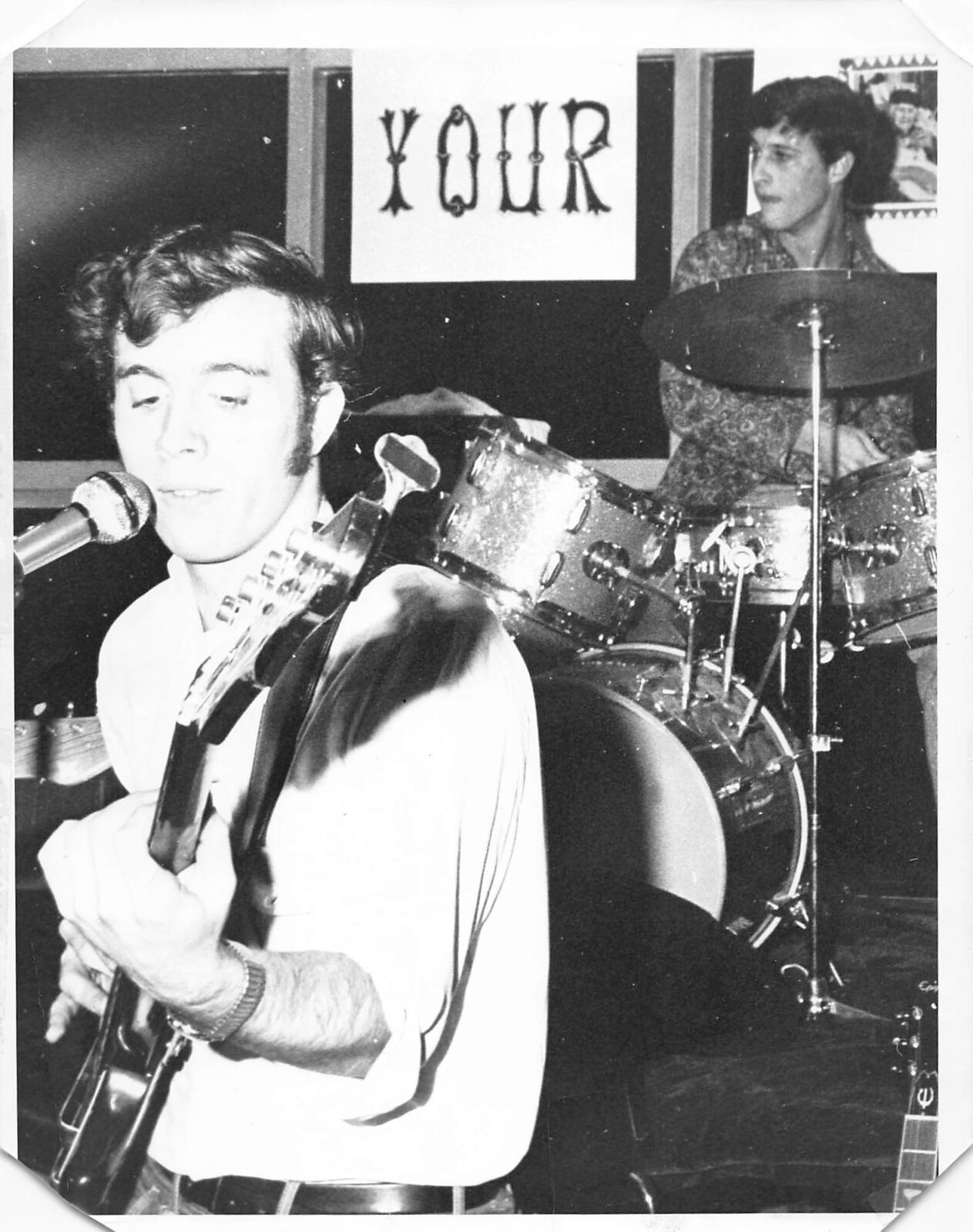
Jonathan LeVeen: There are different stories about the name. The one I remember was that Jeff and I were in English class, taught by Mr. Parquette, Willie’s father. We would learn new vocabulary words every week. One week, the words were “cryptic” and “subterfuge”. Somehow, those words got stuck together as the title of the song.
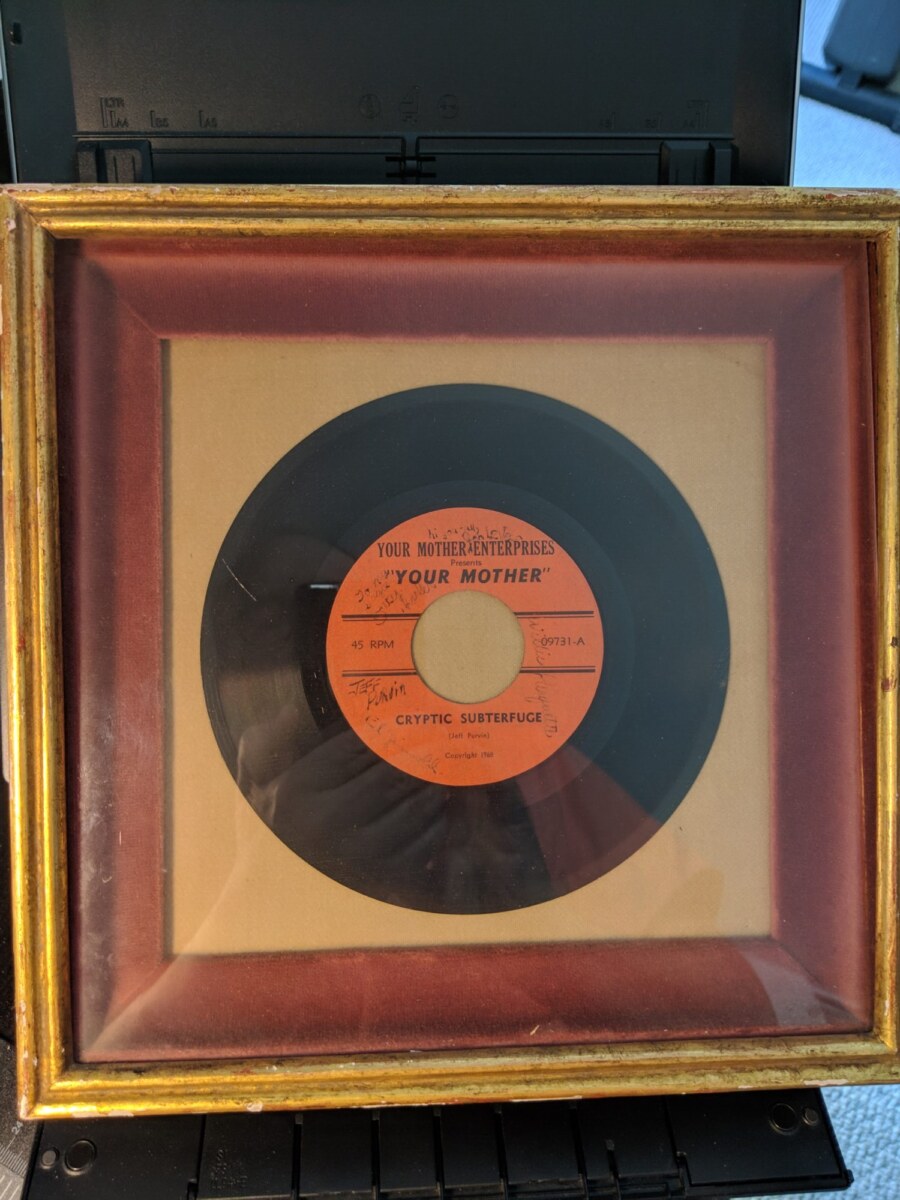
‘Cryptic Subterfuge’ is something else! Very unusual song … What is it about?
Jeff Purvin: There’s always a risk when you’re writing a song that you’re going to forget what you just created and never be able to replicate it again. But, with this song, the townhall, the weird town, the dirt simple bass line were a combination that was impossible to forget. Pretty quickly, though, I realized this story was going to be limited by the musical brevity of the song’s verses. This song just didn’t have the tempo and word count to become an “Alice’s Restaurant” story. So, I steered it in the direction of an otherworldly dream about a town and a special woman, that ends unexpectedly.
“We only had an hour of time, we played both sides of the single, live, with no overdubs and no editing.”
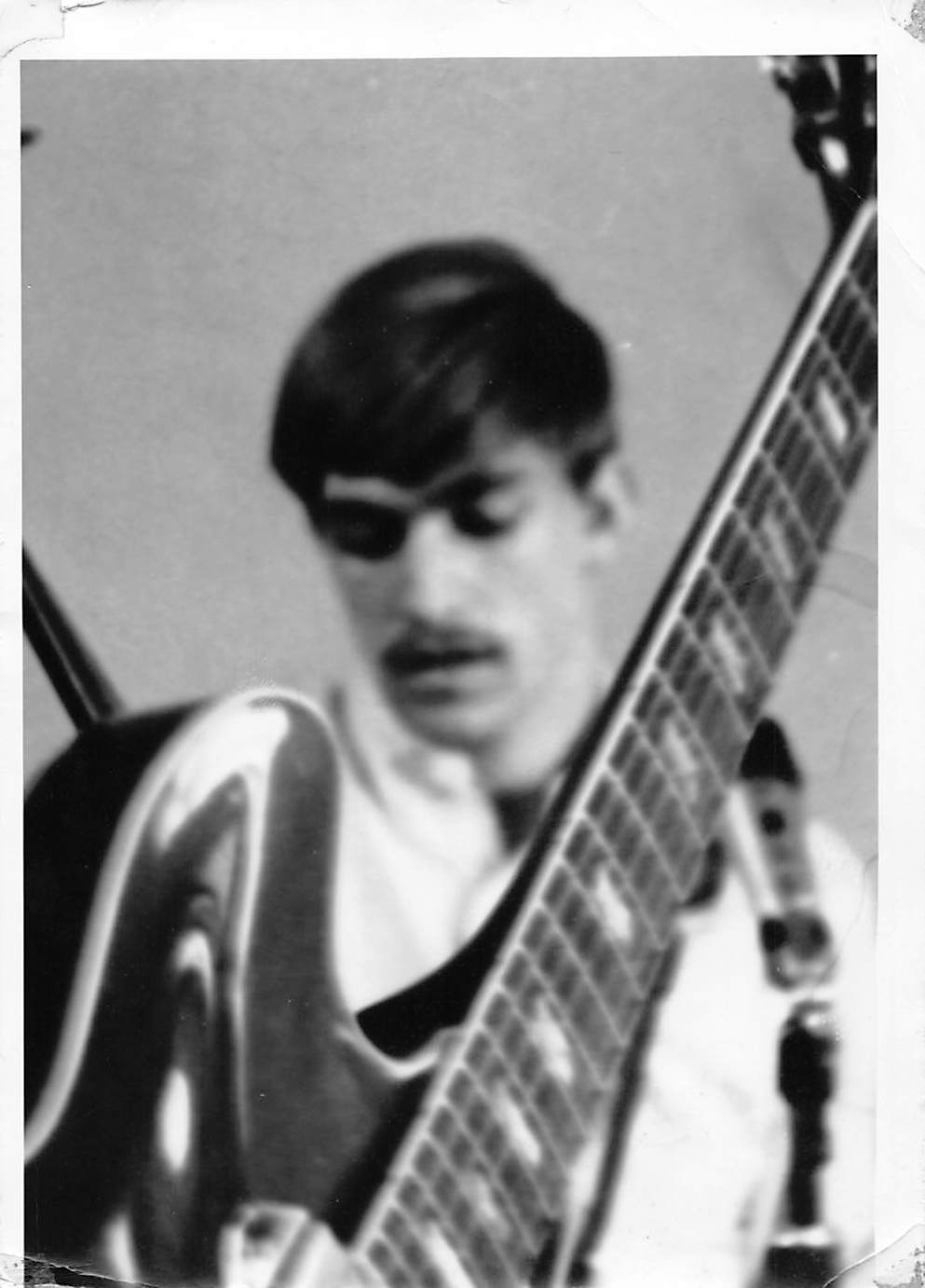
Where did you record it? What kind of equipment did you use and who was the producer?
Jeff Purvin: The studio was called Syncron Sound Studios. It was in Wallingford, CT (USA). Surprisingly, it seems to exist today as Trod Nossel Studios. Remembering we only had an hour of time, we played both sides of the single, live, with no overdubs and no editing. I think we played both songs twice, and later chose the best takes. “Cryptic Subterfuge” speeds up and slows down in the middle. Later, I measured our starting and ending tempo with a metronome. I was impressed that we started and ended the song at the exact, same speed. The studio had an electric harpsichord sitting off to the side. Jon wanted to add it to “Hello”. He instantly came up with an appropriate harpsichord part for the song and recorded it flawlessly moments later. I don’t remember the recording engineer’s name. The band was the producer.
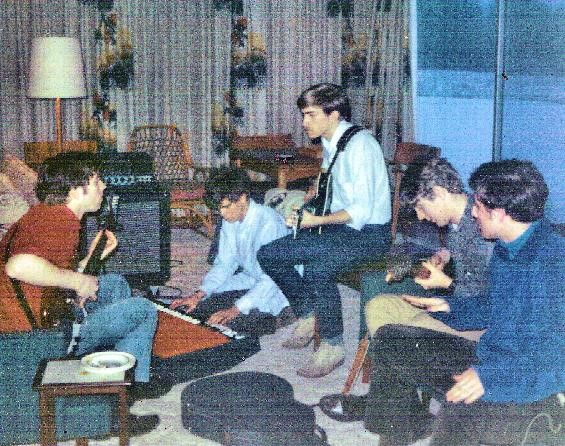
Jonathan LeVeen: It was the studio where one of the most popular local bands, The Wildweeds, recorded. I brought my Vox Jaguar organ, and, as Jeff said, there was a Baldwin harpsichord there, so I wanted to play that instead for “Hello”. There was also a Hammond B3. But I had never played one. My opening organ lines were inspired by the band Vanilla Fudge, known for their big B3 sound. But, given our really limited time in the studio, I decided to stick with the Jaguar. It’s thin, wheezy sound probably helped to give the song its eerie sound. I have a very clear picture of Jeff conducting the band, setting the tempo faster and faster and then waving his hands to get us back to the original tempo. Up to a week before the session, we didn’t know how to end it. Then, I think Gary and Jeff came up with that very cool drum riff and final hit. Another memory was about Willie. A couple of days before the session, his fuzz box was stolen. His original solo was going to be a more aggressive, distorted lead. At the last minute, he came up with that undistorted, mesmerizing sound. That was a happy accident.
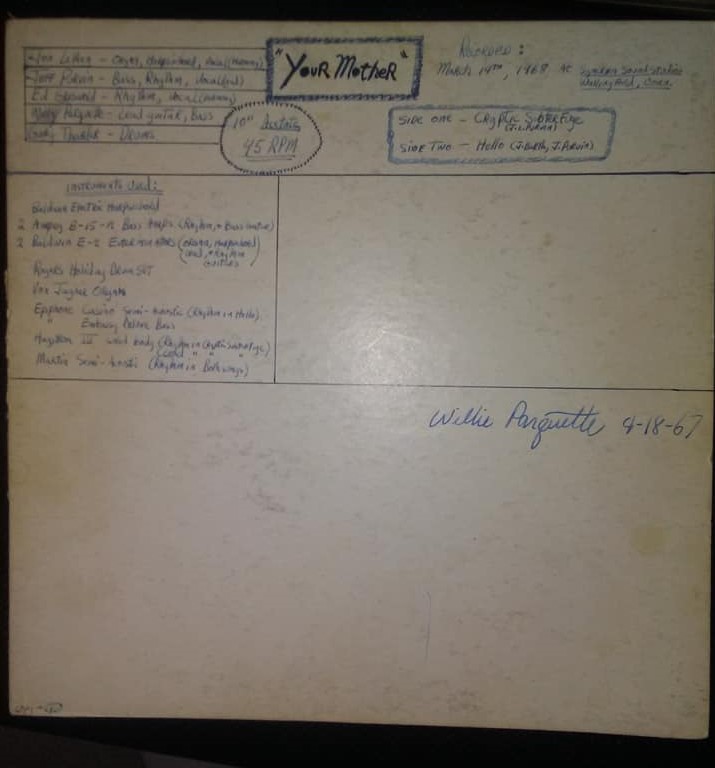
Is there any unreleased material by Your Mother?
Jeff Purvin: Nothing of note, from my perspective.
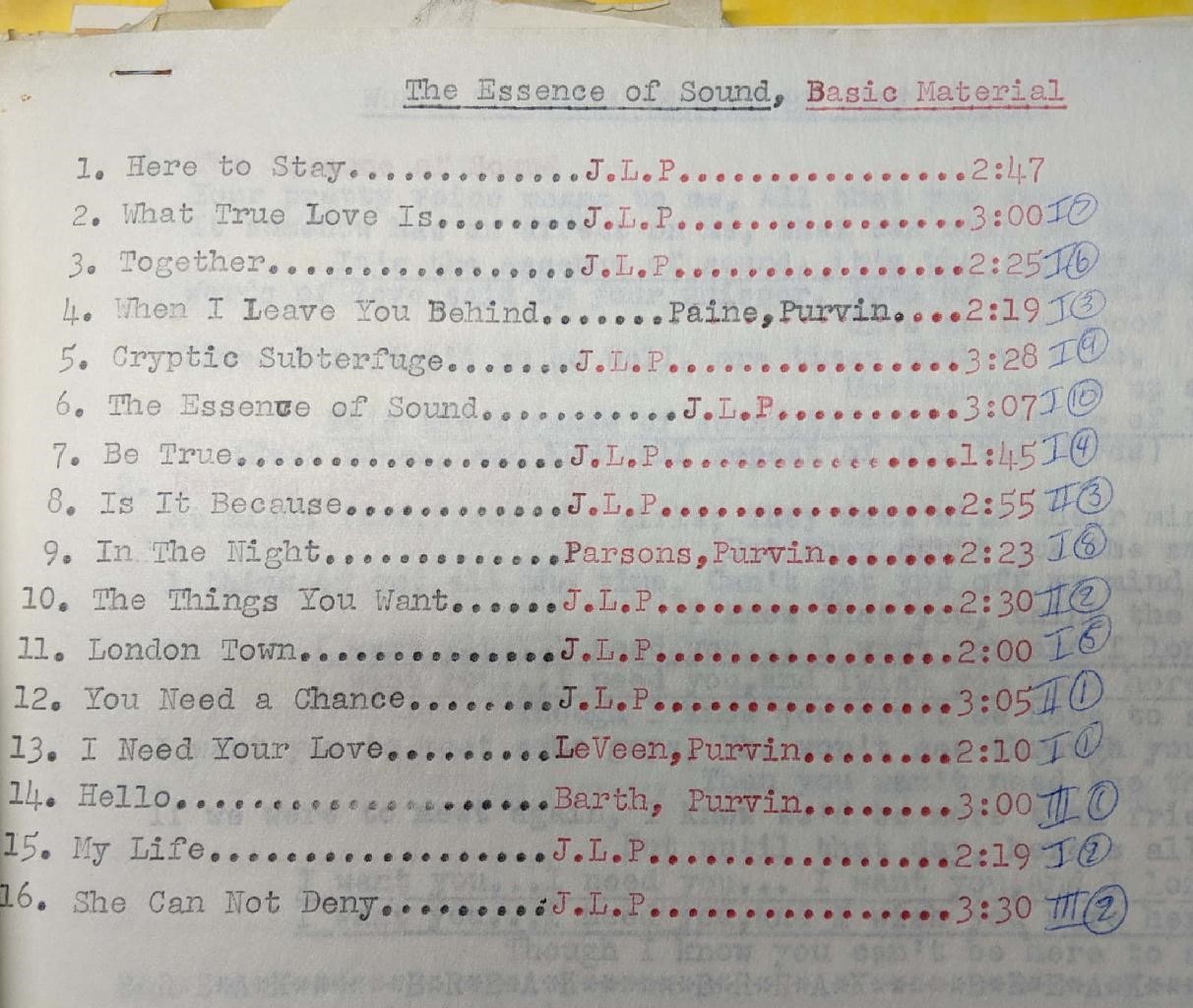
Jonathan LeVeen: There are some home-made tapes somewhere of a recording session in the school’s gym. I wish I knew where they went!
Were you inspired by psychoactive substances like LSD at the time of writing?
Jeff Purvin: No. Most of us weren’t really exposed to the classic 60’s, hippy drug scene until we graduated from our isolated, little boarding school and went to college.
Jonathan LeVeen: The school had a pretty active drug sub-culture. I would join in occasionally, but not when playing or rehearsing.
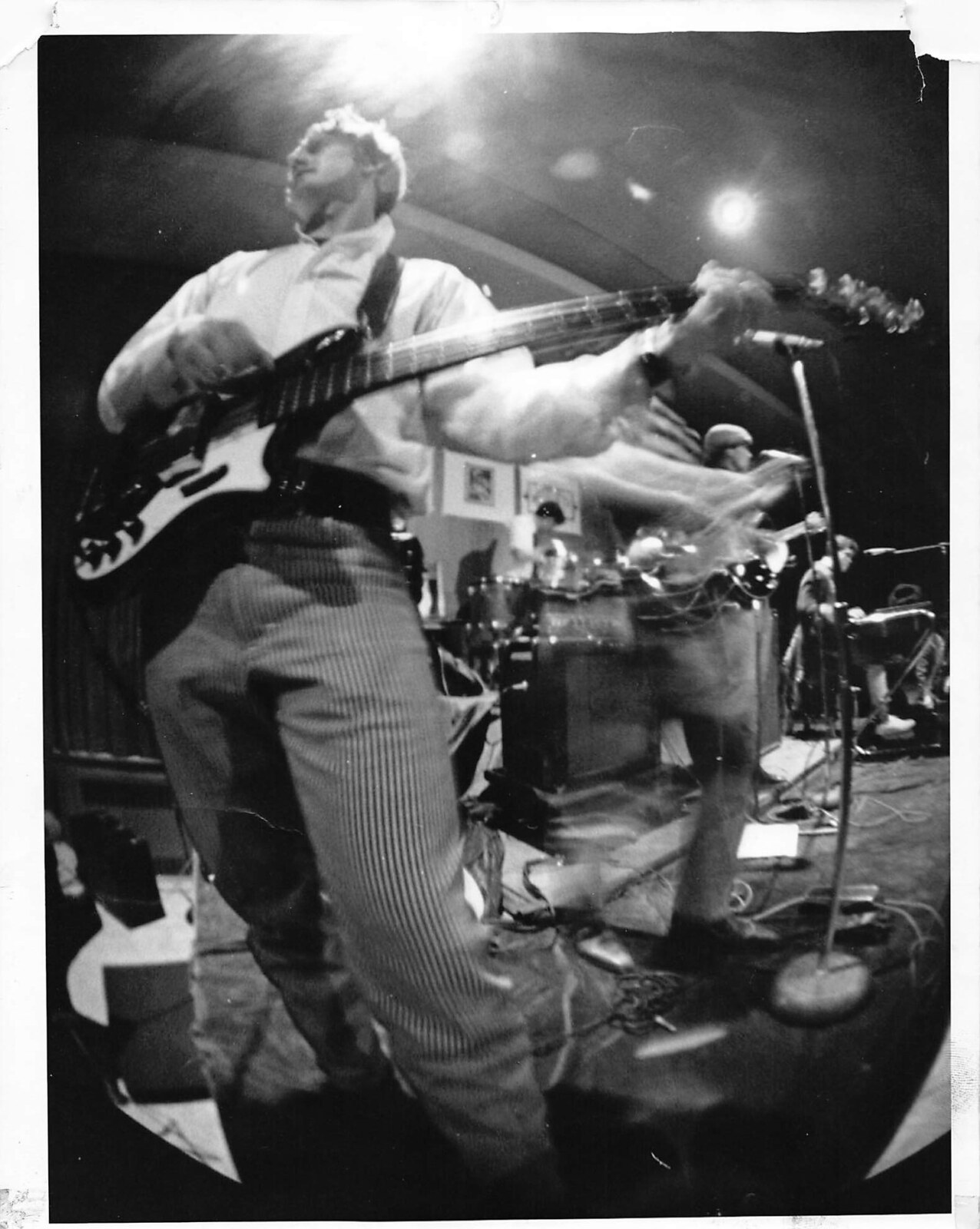
Gary Tharler: Though, related, I emphatically emphasize I never performed under the influence of anything besides, passion, years of practice and Gene Krupa. I didn’t do anything at that time anyway…not even tobacco or alcohol. Not much later either.
Looking back, what was the highlight of your time in the band? Which songs are you most proud of? Where and when was your most memorable gig?
Jeff Purvin: One of my lifetime favorite moments came when we stood on a stage a few months after we sold out our records. Jon started playing the first few notes of “Cryptic Subterfuge” and I listened, smiling, while many hundreds of people erupted into anticipatory applause and catcalls.
Jonathan LeVeen: The recording session was the biggest highlight. I really liked the songs we recorded. Jeff had written a few others that really sounded like hits. If we had continued on, “You See It in the Way She Walks” and a sweet ballad called “Here To Stay” would have been great tunes to record.
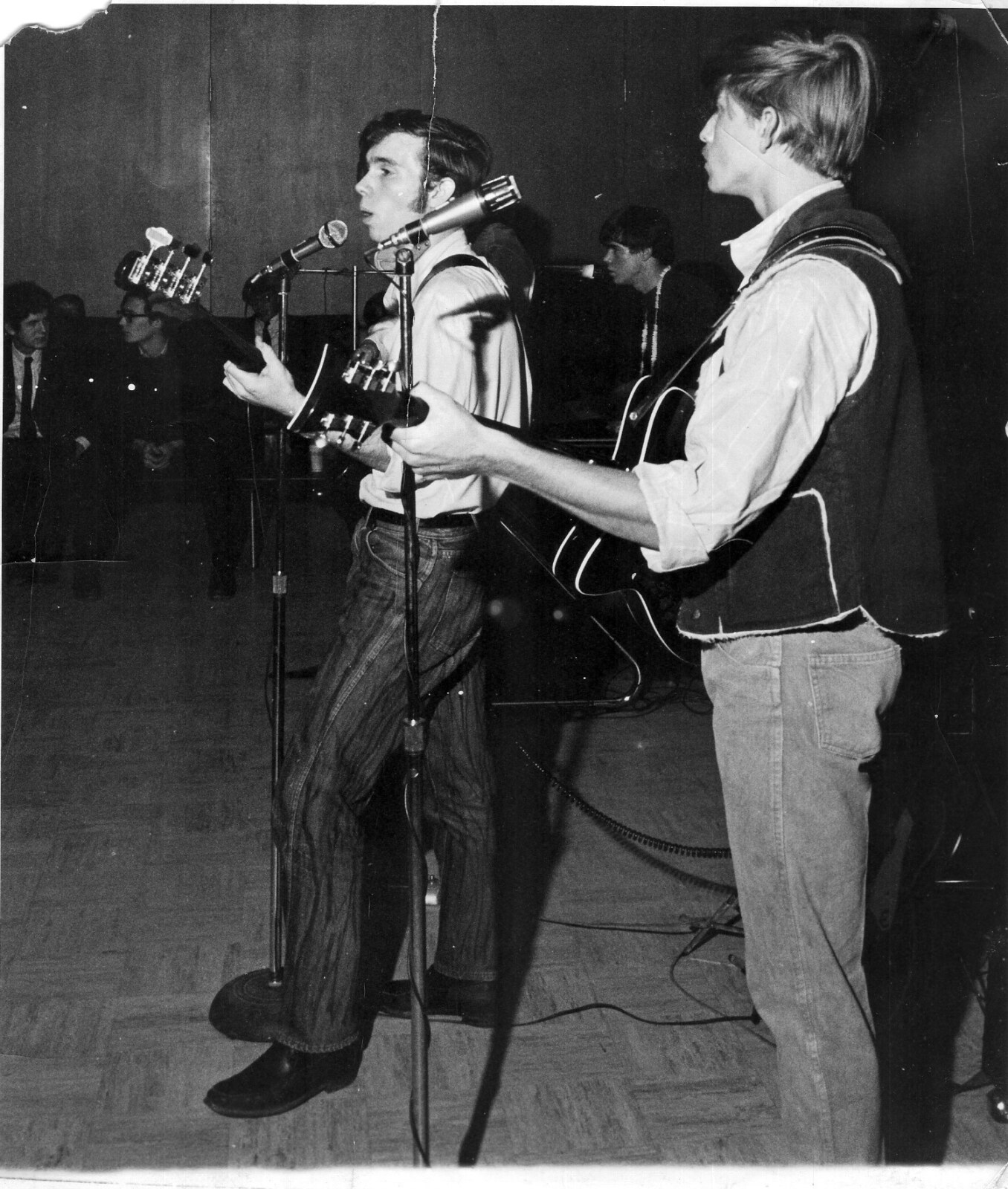
Gary Tharler: A number of things make something memorable. The gig we had to rent a large truck which took most of our fee; discovered the girls school we were performing at didn’t like acid rock and blues; and after the dance when Jeff and I were going to meet up with some girls at another school, but it didn’t happen because it got too late, and we ended up sleeping out in Jeff’s station wagon on a below freezing night…that was memorable. Otherwise, it was so much fun playing. There were memorable moments, but not one night standing out from another for me.
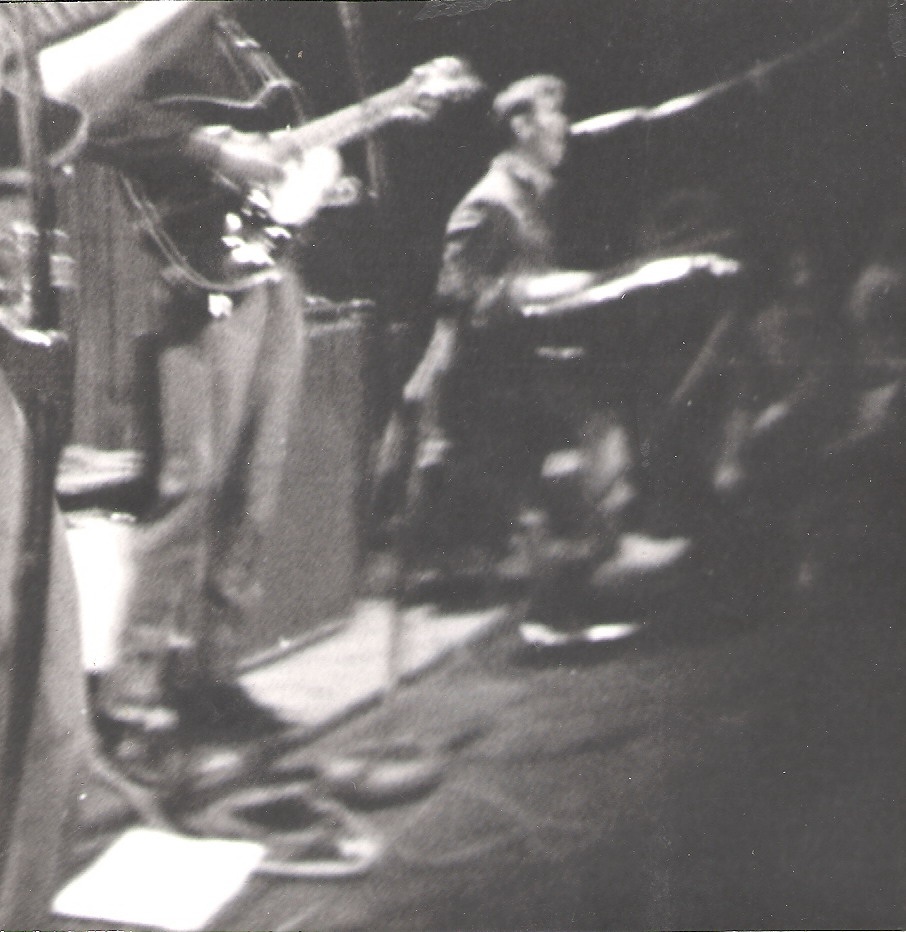
What happened after the band stopped? Were you still in touch with other members? Is any member still involved with the music?
Jeff Purvin: We’ve stayed in touch with each other over the years. Willie died a few years ago but he was actively playing in local bands just before he died. Jon and I were both pretty active in music for several decades after Your Mother. These days, I’ve tailed back on all that and play mostly privately.
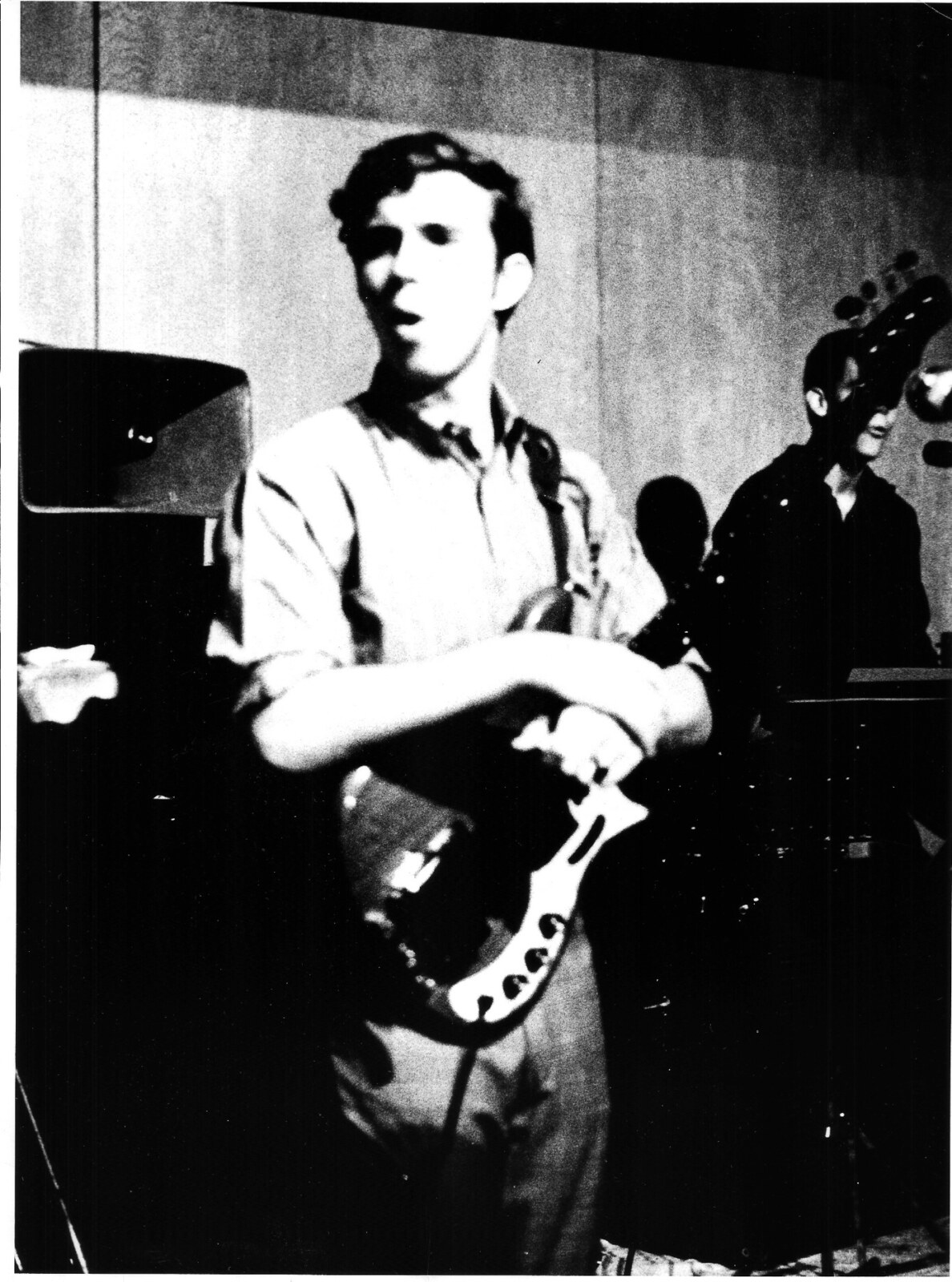
Jonathan LeVeen: I traded my Jaguar for a Fender Rhodes Sparkletop. In college, I started playing jazz and blues in a local band in Waterville, Maine. When I started my career as a broadcaster, I stopped gigging and sold the Fender. But always had a Wurlitizer 200A keyboard as my jobs took me to different cities. I retired early, went to music school, and ended up playing covers in bar bands and jazz combos. I still do a few gigs a year. As Jeff and Gary said, we have been in touch off and on through the years. Now, with email, we’re connected even more.
Gary Tharler: Jeff PQ and I joined up with another guy who was a very powerful lead singer. I can’t remember if we ever played any gigs. The fact was, we had all gotten into college for the fall and if we didn’t attend…we’d likely be headed for Viet Nam. So, it all pretty much ended at graduation.
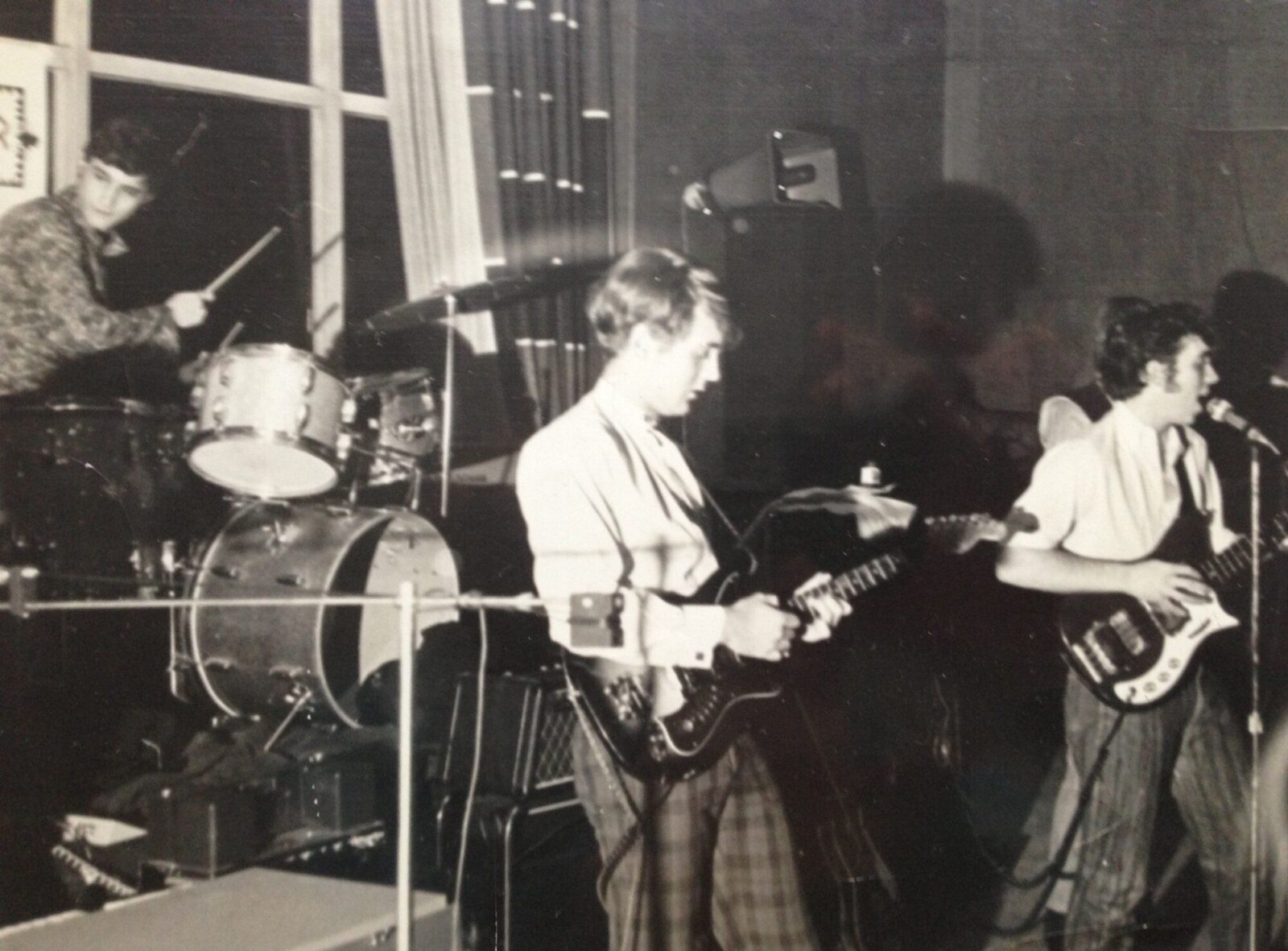
Thank you for taking your time. Last word is yours.
Jeff Purvin: What I love about It’s Psychedelic Baby Magazine is that it’s keeping alive an era rich with thoughtful, talented musicians making great music. Comparatively, today’s music features few truly accomplished musicians and even fewer thoughtful, exciting songs.
Jonathan LeVeen: I have always found that music – playing or listening – is the perfect mental health medicine. At those times when things have been difficult, playing music has always pulled me out of the depths. It has a magical power to help express feelings you can’t say with words. I’m thankful that I found music early on — and that my first playing experience began with such a great group of talented and supportive people.
Gary Tharler: Three secrets to success.
1. Be good. We all were very accomplished with our instruments, years of practice, lessons, etc.
2. Have fun. It was always clear we were having a ball. Audiences pick up on that. I once heard someone say, all passionate people are not geniuses, but all geniuses are passionate.
3. Be passionate. I.E. a passionate person never sees setbacks.
Thank you for this acknowledgement Kleman.
Best, Gary (the drummer)
Klemen Breznikar



